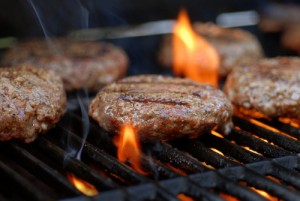Easter campers be aware of CO poisoning risk linked to BBQs
Next week the Easter holidays start and many families will be thinking of heading off camping, so the Public Health Agency (PHA) is reminding people of the danger of carbon monoxide (CO) poisoning from leaving lit or smouldering barbecues inside tents or caravans.
 Many people are already aware that fossil fuels and wood, when burnt without enough oxygen, create high levels of CO.
Many people are already aware that fossil fuels and wood, when burnt without enough oxygen, create high levels of CO.
However, the PHA is concerned that campers may not be aware of the risks involved with taking lit or smouldering barbecues inside tents, awnings or caravans.
CO is a colourless, tasteless, odourless gas that is non-irritating, and as a result can be very hard to detect. Symptoms of carbon monoxide poisoning include headaches, nausea and vomiting, exhaustion, drowsiness, dizziness and lightheadedness, ‘flu like’ symptoms, palpitations (feeling your heart beat oddly), chest pain and losing consciousness.
CO poisoning can be fatal and affect anyone, including healthy adults. However, children, older people, pregnant women and anyone with heart or breathing problems are more vulnerable to its effects.
Dr Gerry Waldron, Acting Assistant Director of Public Health (Health Protection) at the PHA, advises, “It is important to remind people going camping or caravanning over the Easter holidays that despite being out in the fresh air, carbon monoxide can build up very quickly in enclosed spaces, such as tents and awnings, to levels that can kill.
“And with the cold weather forecast, campers may be tempted to take barbecues inside. Barbecues should never be used or left inside tents or awnings once they have been lit or after they have been used – they should be disposed of safely ensuring all fire and ashes are completely extinguished.
He added, “It is essential that people take care when using barbecues and ensure that they are safe and used in properly ventilated spaces. Anyone who suspects they are suffering from carbon monoxide poisoning while camping should immediately go outside into the fresh air and seek urgent medical attention.”
Short URL: https://newrytimes.com/?p=41057













